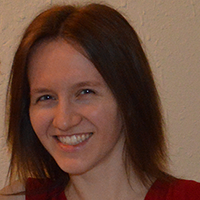Laura Crysel, Stetson University – Harry Potter Personalities
Are you a Gryffindor or a Slytherin?
Laura Crysel, assistant professor of psychology at Stetson University, explains how the sorting hat may reveal more about you than you think.
Laura Crysel received a Ph.D. and M.S. in social psychology from the University of
Florida and a B.A. in psychology from Wake Forest University. She is currently an assistant professor at Stetson University in DeLand, Florida. Laura is a Gryffindor.
Harry Potter Personalities

In J.K. Rowling’s Harry Potter series, students at Hogwarts School of Witchcraft and Wizardry are divided into one of four “houses” based on who they are and what they value. Gryffindors value bravery, Hufflepuffs value loyalty and hard work, Ravenclaws value wit and learning, and Slytherins value cunning, or “using any means to achieve your ends.” Fans of the books often identify with one of these houses.
Rowling also created a “sorting quiz,” which she shared on the Pottermore website (https://www.pottermore.com/). This quiz tells fans which Harry Potter House best fits them. My colleagues and I were curious to see whether the quiz was measuring “real” personality traits; or at least whether or not the sorting results matched up with measures of personality developed for scientific research. As it turned out, it did seem to measure fans’ actual personalities, at least a little! For example, Ravenclaw participants valued thinking deeply more than the average of the other houses: they reported being higher in “need for cognition.” Slytherin participants reported higher manipulativeness and narcissism, and lower empathy: a personality such that the “ends justify the means.”
What does this tell us? Fans may be trying to describe themselves in a way that lets them fit into the group they were assigned. They may even be seeing themselves differently as a result of the feedback. Identifying as a “Slytherin” may act psychologically like being part of a club, including wanting to “fit in” to the expected Slytherin traits.
However, because only half of participants got the house they wanted, I think that’s not telling the full story. While half is greater than chance (which would be about 25%), this also says to me that people weren’t able to cheat the quiz across the board, and that Rowling’s sorting quiz may be saying something about how people really are.
People may be identifying with groups that actually fit their real personality traits.



